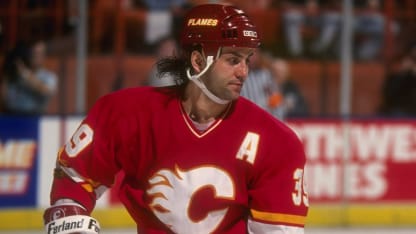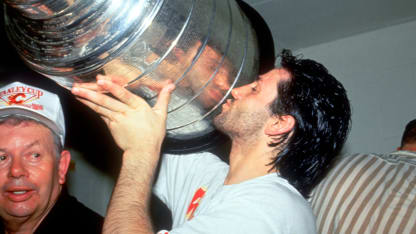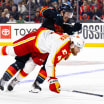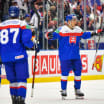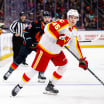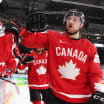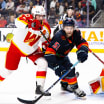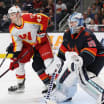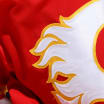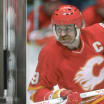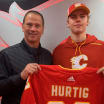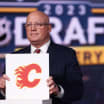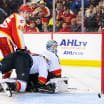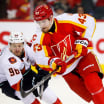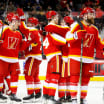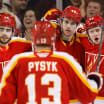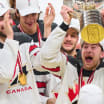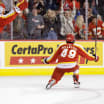He had that look of a wily street urchin, jaunty and cunning and larcenous.
"With Killer,'' once explained goaltender Rick Wamsley, a longtime teammate, "it was kind of like the 'my dad's tougher 'n your dad' skinny-little-kid-in-the-playground thing.
"You hit him once, he had to hit you twice. You hit him 10 times, he had to hit you 11.
"You could knock him down and blacken his eye, but he wouldn't let it die until he'd hit you that one extra shot; until he'd won."
On the Flames' Stanley Cup collection of 1989, a group teeming with good-to-great individuals of differing talents, Doug Gilmour was indisputably the table-tipper, the difference-maker.
The competitive conscience.
"He didn't blow smoke,'' praised left-winger Colin Patterson. "He weighed what, 165-170 pounds? But he'd go into the corner against a guy 220 and come out with the puck.
"It's hard not to follow a lead like that."
The year after Gilmour's arrival, the Flames claimed their first President's Trophy as the NHL's leading points team through the regular campaign. The second, they were champions.
Coincidence? Yeah. Right. As if.
The man who brokered the deal that brought Gilmour here via the St. Louis pipeline, a seven-player extravaganza days before the opening of training camp 1988, summed it up best.
"Obviously,'' Cliff Fletcher has said, often, "the trade that pulled everything together was getting Doug Gilmour."
